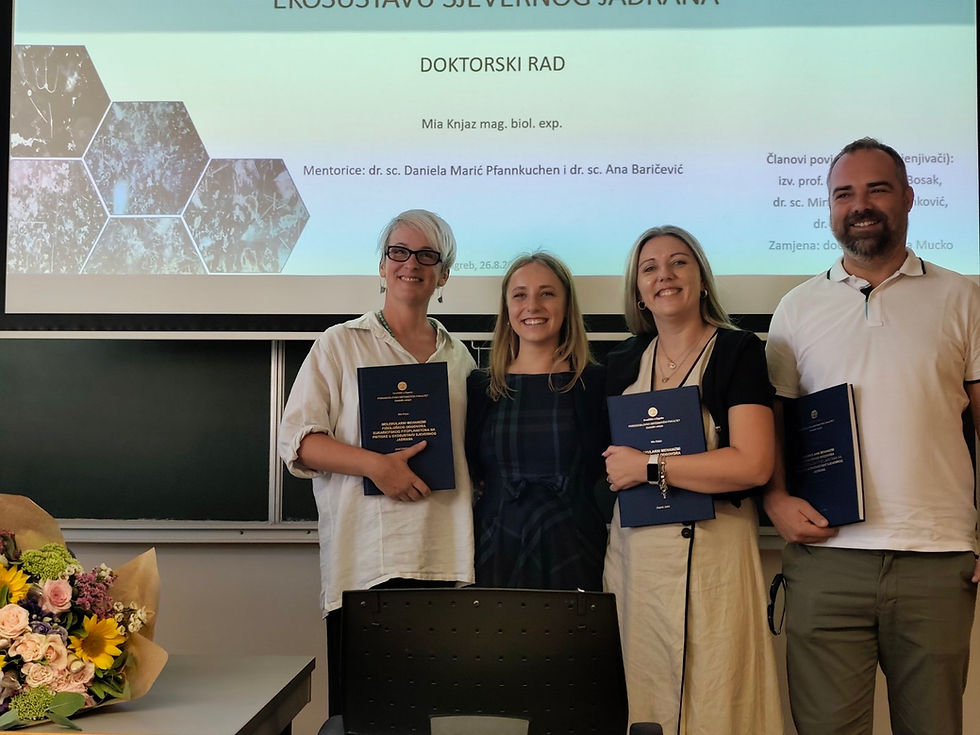New publication:Paradox of relatively more phospholipids in phytoplankton in phosphorus limited sea
- Daniela Maric Pfankuken
- Jan 25, 2024
- 1 min read
Marine life is threatened by global warming and its indirect consequences, which include, among others, increased stratification leading to phosphorus (P) and nitrogen depletion in the upper water column. Phosphorus plays a key role in all biochemical systems; storage of metabolic energy, formation of genetic material, and subcellular compartmentalization. Our multi-year study of lipid biogeochemistry in the northern Adriatic (Mediterranean), which is becoming warmer and nutrient-poorer, particularly regarding P, has shown that under conditions of P scarcity, phospholipids are relatively more abundant and smaller plankton cells dominate. Consistent with the field data, experiments with seven phytoplankton monocultures, comprising microplankton, nanoplankton, and picoplankton, confirmed a relatively higher phospholipid content in the smaller phytoplankton species and, in particular, an increase in those grown under stress conditions in general, including, unexpectedly, P-limitation.




Comments